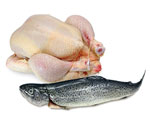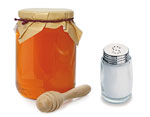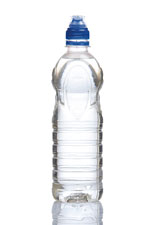
During the first year of life, and once complementary feeding has been started, milk (breast or formula) continues to be an important source of nutrients, and feeds must be continued at 500-700 ml/day.
Other dairy products (yogurt, cheese, etc.) can be introduced in small amounts, but owing to their ability to produce allergies, as they are produced from cow’s milk, they should not be offered before 9 months of age.
Cereals are divided into two types with respect to infant feeding: those that contain no gluten (sweetcorn, rice) and those that do (wheat, oats, barley, rye), the latter may be responsible for celiac disease (a condition of gluten intolerance).
Cereals without gluten can be offered from 4 months of age, mixed well with water, breast milk or formula. It is preferable to feed with a spoon rather than a bottle, as this can cause the baby to consume too much, thereby encouraging the development of obesity.
As for cereals with gluten, it is recommended to introduce them in small amounts between 4 and 6 months (but before the age of 7 months), ideally when still breastfeeding. Both early and late introduction have been linked to increased risk of celiac disease.
Gofio, very common in our Canarian food culture, is not recommended until after the first year of life because of its high phytate content, and because it isn´t a hydrolysed cereal, making it more difficult to digest.
Vegetables are rich in vitamins and fibre, and are an essential part of a healthy diet. They can be introduced from 4-6 months, usually boiled, drained and mashed, adding a splash of olive oil. After 8 months, they can be eaten as pieces.
Leafy greens (spinach, chard, etc.) and tubers, such as beets or turnips, should be avoided for the time being, owing to their high content of nitrates its ability to produce a blood disorder called methemoglobinemia . They can be offered from one year onwards.
It is also preferable to avoid very flatulent vegetables like cabbage or cauliflower.
Cooked vegetables, if not consumed, should be discarded after two days, even though they may have been kept in a refrigerator.
Legumes can be offered in small quantities from 9-10 months of age.

Natural fruit can be introduced from 4-6 months in the form of purée or juice. Almost all fruit is suitable, although it is preferable to delay introducing more allergenic ones, such as peaches, strawberries and kiwis, until 2 years.
Juices should never be given by bottle (which promotes tooth decay), but with spoon or cup, without adding sugar or honey. Pieces of fruit can be offered when the baby is able to chew without choking.
Artificial juices are not suitable for babies, and they are also, generally, unhealthy in childhood.

From six months you can gradually introduce meat in small amounts. It´s usual to start with a milder taste like chicken or beef, and later pork, rabbit, etc.
Offal is not recommended, but can be fed sporadically from the first year of life.
Fish (fresh or frozen) is usually introduced from the eighth month, normally white fish at first (hake, sole, megrim, parrot fish, etc.), then blue fish.
It is also recommended to delay the introduction of eggs until the end of the first year, usually cooked yolk at 9 months, and the white after 12 months.

In general, you should not add salt to food during the first year.
Nor is it appropriate to sweeten food with sugar, honey, condensed milk or sweeteners, which predispose to an early appetite for sweetness, as well as increasing the risk of tooth decay, diabetes and obesity.

It isn´t necessary to provide water whilst breastfeeding exclusively, only after starting complementary feeding.
During the first year, it is difficult to estimate the amount of water a baby needs, since there are variations depending on the ambient temperature, food eaten, etc. It´s best to offer water several times a day, and let the child regulate what he drinks.
It isn´t advisable to give tea or infusions of any kind.















